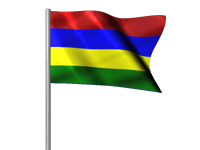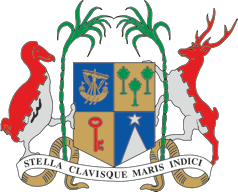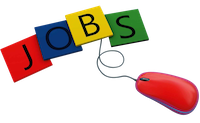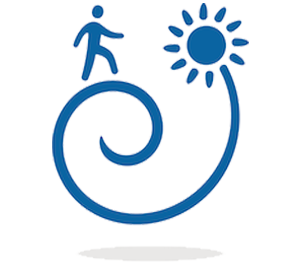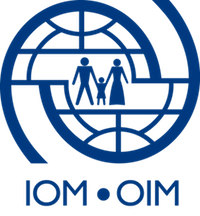The Jobseeker’s Guide
There are a variety of aspects of the job search a job seeker just doesn’t have any control over. Even with the great amount of effort you put forth, there’s no guarantee your experience level will impress your potential employer or you’ll make it past a phone interview.
But there is one part of the job search you do have complete control over — your attitude — and it’s arguably the most important piece of your job search.
The job search can do a significant amount of wear and tear to your mental outlook. The mixed range of emotions that job seekers experience on a daily basis can sometimes stretch from frustration to an overall lack of lack of confidence — neither of which lend themselves to any sense of positivity.
While it’s no simple feat to overcome the negativity you’re faced with, there are many reasons why upholding a positive attitude allows you to remain powerful and resilient in the face of common struggles during your job search.
Aside from simply pushing you forward when you’re feeling worn down, your positive attitude can be used as leverage to help you stand out from the competition–you’ll be able to accept criticism and handle rejection better, and it will even help you search harder and potentially help you secure a job faster.
List of Information You Need to Apply for a Job
An application form is designed to bring out the essential information and personal qualities that the employer requires and does not allow you to gloss over your weaker points as a CV does. In addition, the time needed to fill out these forms is seen as a reflection of your commitment to the career.
When you complete a job application, regardless of whether it is a paper application or an online job application, there is information you will need to provide in order to complete the job application and submit your application for employment.
In addition, to providing personal information, work history, education, qualifications and skills, you will also be asked to attest to the fact that all the information you are giving is accurate.
Not telling the truth, fudging employment dates, leaving out information, and other inaccuracies can be grounds for not being hired or for being terminated in the future if the company finds out you misrepresented your background or lied on the job application. The following is the information that is required to complete a job application :
- Name
- Address, city, state, zip code
- Phone number
- Email Address
- ID number
- Have you been convicted a court of law within the last five years?
Education and Experience
- School(s) attended, degrees, graduation date
- Certifications
- Skills and qualifications
Employment History (for both current and prior positions)
- Employer
- Address, phone, email
- Supervisor
- Job title and responsibilities
- Starting and ending dates of employment
- Reason for leaving
- Permission to contact previous employer
- List of references
Information Required Completing a Job Application
From: |
John Donaldson |
| NHDC Road, | |
| Moka | |
| To: | HR manager |
| XYZ Company | |
| 8th floor Sterling House | |
| Port-Louis | |
| Dear Sir, | |
| I am writing to apply for the Programmer Position advertised in the Le Matinal. As requested, I am enclosing a completed job application, my certification, my resume and three references. | |
| The opportunity presented in this listing is very interesting, and I believe that my strong technical experience and education will make me a very competitive candidate for this position. The key strengths that I possess for success in this position include: | |
|
|
With a BSC Degree in Computer Programming, I have a full understanding of the full life cycle of a software development project. I also have experience in learning and excelling at new technologies as needed. Please see my resume for additional information on my experience. I can be reached anytime via email at dan.maryson@emailexample.com or my cell phone, 7654321. Thank you for your time and consideration. I look forward to speaking with you about this employment opportunity. Sincerely, Danny Maryson |
|
Name : Address : Telephone : Cell Phone : Email : |
Personal Information Date of Birth : |
Optional Personal Information Marital Status : |
Education Include dates, majors, and details of degrees, training and certification Secondary School University Graduate School/ Technical Institution |
|
Academic qualifications : Secondary level : Tertiary level : Technical qualifications : Additional qualifications : e.g computer literate |
Employment History : List in chronological order, include position details and dates Work History Academic Positions Institution / company name |
Interests : |
Resume Do’s and Don’ts
| DO’S | DONT’S |
|---|---|
| 1. use numbers where appropriate to clearly describe your accomplishments, as in "led a team of nine sales reps." | 1. use vague qualitative terms such as "large" or "many," which leave the reader with questions about specifics |
| 2. Distinguish the important from the trivial in your background to fit the most relevant and significant elements onto a single page or so. | 2. Waste resumes space with frivolous information, such as "Voted mostly likely to succeed in high school." |
| 3. stick to a basic, clear format that helps the reader glean information quickly and with minimal effort | 3. try to differentiate yourself with an unconventional format or tactics such as graphics and colored paper, unless you are applying for jobs in arts-related fields |
| 4. make your resume a document that focuses on your accomplishments and skills | 4. include reasons for leaving your jobs, salary information, or references on your resume |
| 5. Discuss your two or three most relevant strengths and illustrate them with experience and achievement statements. | 5. Refer to yourself as a subject (first or third person) in your resume: "I helped prepare correspondence," or, "Applicant wrote outreach letters to prospective clients. |
| 6. Present yourself as a professional, with a straightforward email account and, if applicable, a website that showcases relevant skills and achievements. | 6. Include email addresses or websites that have the potential to reveal controversial or inappropriate personal information: Avoid addresses such as sxybb@imacutiepie.com or queenoftheraccoons@hotmail.com. |
| 7. Be aware that employers are interested in your eligibility to work legally and may ask for documentation. Take the time to learn about your rights and responsibilities in the workplace. | 7. Include personal information such as ID number, age, race, or marital status on your resume (unless you're writing an international CV). |
| 8. Use your current home address, a personal email address, and telephone number with a professional outgoing message. Be sure that prospective employers can easily reach you; check your messages regularly. | 8. Use your current work email or phone number as contact information. This indicates that you are job searching on your employer's time, something no prospective employer will view positively. |
| 9. Do remember that your resume is aimed at time-poor professionals. Make it easy for them to conclude that you are a strong candidate. | 9. Don’t lie or embellish the truth. It's much easier to check qualifications these days. You'll ultimately be caught out, and then what was a small untruth is likely to blow your chance of success. |
| 10. Do keep your CV to a reasonable length. One page is almost certainly too short, two pages may not be enough to cover the essential detail for someone who has had a full career, and three pages is probably the upper limit. | 10. Don’t be tempted to shrink the font or reduce the margins to get more information in. Keep it easy to read. If you need to say more, use another page. |
| 11. Do include details of higher education degrees, such as MBAs, or executive programs attended. | 11. Don’t include long lists of obscure courses you've attended on how to be a better time-manager. |
| 12. Do explain all significant breaks in your career or education. Recruiters hate unexplained gaps. | 12. Don’t include pages of obscure testimonials, references, newspaper cuttings and brochures. |
| 13. Pick out key words from the job description and repeat them in your resume. If specific skills are mentioned, you want the employer to know you have them. | 13. Do not include personal information such as age, or religion. Your interviewer may make a subconscious judgment that could affect your chances of getting the position. |
| 14. Include references. Make sure your references are aware you are using them so they're prepared to talk about you. Share a copy of your resume with them. Try to find references with credentials -- past employers, teachers and professors as opposed to friends and neighbors. | 14. Don’t Write The Same Thing Again N Again: Avoid writing or repeating the same thing in your CV/RESUME which you have already mentioned, even if it is written in the form of bullets, because it will use the important space and take your other achievements far away. It also doesn’t give a good impression on your CV/RESUME. |
| 15. Interest: Keep this section simple and brief except for where an interest is relevant to the opportunity i.e. Play poker both online and with friends | 15. Don't put anything down under "interests” unless it has some relevance to the job or you can passionately talk about it for hours. |
Preparing for an interview
- Physical preparations for interview. Physical preparations include looking after health and hygiene, maintaining a groomed appearance, dressing appropriately, good body language, etc.
- Mental preparations for interview. Candidates who desire to get selected in the face of stiff competition need to appear before the interview panel fully prepared on subject content. This includes a thorough revision of actual subject knowledge especially if it is work related. Getting acquainted with current affairs and general knowledge is also a good idea. Usually selection interviews begin with the candidate being asked to introduce and tell the panel something about him/ her. This is the time when the interviewee can utilize to the maximum and project an optimum image of him/her. Since this question is invariably asked at any and every interview, one should give a lot of time and take a lot of care while preparing this part.
- Psychological preparations for interview An interview for a job becomes a situation with much at stake and is bound to be stressful. At such times, a strong, balanced, positive and confident mind helps to come out calmly, without much damage to self-esteem. It is imperative to remember during this time that it is not a matter of life and death to get selected in any one particular interview. Each interview should be taken as a learning process in order to do better in the next one. Learning from the experiences of the last interview, one can prepare better for the ones to come.
Good health radiates confidence and cheer. A healthy person not only looks attractive but he /she is more energetic and fit to face the challenges of a tough situation. A clean, neat and tidy appearance also sends out positive vibes. In any competitive situation, a person with a neat appearance is likely to score over another competitor who has an untidy and disheveled appearance. Well maintained skin-texture, neatly-clipped nails and neatly combed hair can go a long way to create a good impression.
Give yourself plenty of time to :
- research the role and the organization;
- think about how well your experience, interests and skills fit the job and the organization;
- find out what the prospective employer is actually looking for;
- anticipate questions you might be asked, then prepare answers to these questions;
- Find out what form the interview will take, e.g. single, panel, group etc.
You should also :
- Plan the day of the interview, especially your journey with an aim to arrive ten minutes early. Take money in case you need to take a taxi or bus unexpectedly; carry an A-Z street map or put the postcode of the organization into Google maps on your mobile to prevent getting lost
- Decide what you will wear and set it out the night before. Suits and business wear are the best option with comfortable, polished shoes;
- Get an early night - we all perform better when fully awake.
How do I make a good impression at a job interview ?
- Arrive on time or better still early;
- Be organized. Take your application letter, CV and examples of work (if appropriate) with you;
- Listen carefully to questions and answer them concisely;
- Highlight your best attributes in the interview. Before you go, think about what you want the interviewer to know about you (in relation to the job) during the interviewing process;
- Pay attention to the way you communicate. There's evidence to suggest that non-verbal communication overpowers verbal communication so if you describe yourself as confident and outgoing but speak inaudibly and avoid eye contact, the interviewer will read the latter as indicating a lack of confidence and disregard what you said about being confident;
- Practice anything you're concerned about. This could be saying your answers aloud, which builds confidence in hearing yourself speak, or having a trial run of the journey to the interview.
What should I take to a job interview ?
- In general you will not need more than your own letter of application and CV, the job specification/description and your own notes.
- Your invitation to interview should detail everything you need to bring. Often employers request examination certificates, which can take time to locate, so make sure you check what you need in plenty of time.
- You might wish to impress by reading up on the organization’s literature, e.g. a business plan or corporate social responsibility strategy, but make sure you have read it in depth and be prepared to share your views and ideas.
- A pen and notebook are always worth carrying with you and, if giving a presentation, take a copy on a data stick even if you have emailed it beforehand, along with copies of the slides to use as handouts for the interview panel.
- If you take a mobile phone, make sure it is switched to silent or off before entering the organization
Individual interviews
Even though you're probably going to be really nervous when you go on your first job interview, the key to a successful first interview is to prepare for the interview, practice interviewing, dress appropriately and try to stay calm.
Remember, your interviewer is mostly likely used to interviewing first time job seekers. Plus, everyone has a first interview in their work history. After interviewing the first time, it will get much easier. Since you don't know exactly what situations you will be asked about if it's a behavioral interview, refresh your memory and consider some special situations you have dealt with or projects you have worked on. You may be able to use them to help frame responses.
Phone interviews
Employers use telephone interviews as a way of identifying and recruiting candidates for employment. Phone interviews are often used to screen candidates in order to narrow the pool of applicants who will be invited for in-person interviews. They are also used as a way to minimize the expenses involved in interviewing out-of-town candidates.
While you're actively job searching, it's important to be prepared for a phone interview on a moment's notice. You never know when a recruiter or a networking contact might call and ask if you have a few minutes to talk.
During the Phone Interview
- Don't smoke, chew gum, eat, or drink.
- Do keep a glass of water handy, in case you need to wet your mouth.
- Smile. Smiling will project a positive image to the listener and will change the tone of your voice.
- Speak slowly and enunciate clearly.
- Use the person's title (Mr. or Ms. and their last name.) Only use a first name if they ask you to.
- Don't interrupt the interviewer.
- Take your time - it's perfectly acceptable to take a moment or two to collect your thoughts.
- Give short answers.
- Remember your goal is to set up a face-to-face interview. After you thank the interviewer ask if it would be possible to meet in person.
Video interviews
The use of video interviewing is growing. It started with high tech companies, but diverse employers are increasingly aware of the benefits of web based video interviewing. There is consistency - all candidates are asked the same set of questions. Questions can be specifically tailored for the job the employer is hiring for. Hiring managers have the opportunity to replay, review, and rate the interviews online, so they can compare candidates without having to remember who said what or review their notes.
After hiring managers review the video interviews, they can select certain candidates for managers to review. Again, the manager can see each candidate answering the same questions, and can compare the responses. For the employer, video interviewing can save time and hiring expenses, because there are reduced travel costs and management time.
